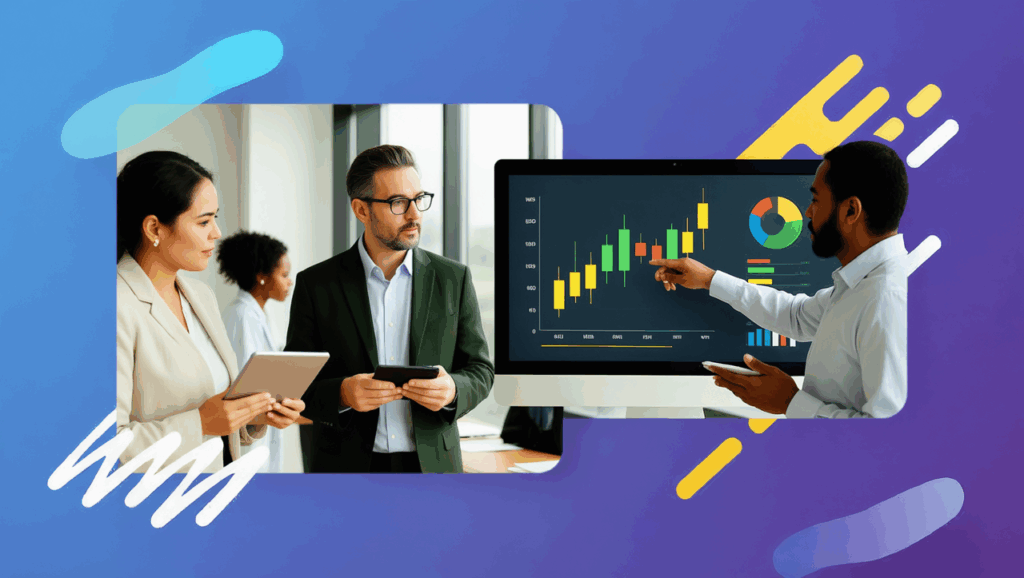When it comes to managing your business’s financial operations, the terms “ERP System” and “Accounting Software” are often used interchangeably. However, they serve different purposes, each with unique advantages. Understanding these differences will help you choose the best solution for your company’s needs.
What Is an ERP System vs. Accounting Software?
ERP (Enterprise Resource Planning) Systems: An ERP system is a comprehensive software solution that integrates various business processes, including accounting, HR, supply chain, CRM, inventory management, and procurement. Examples include NetSuite, Microsoft Dynamics 365, and Sage Intacct. ERP systems are typically used by large enterprises due to their robust capabilities and the technical expertise required to maintain them.
Accounting Software: In contrast, accounting software is designed primarily to manage financial transactions for smaller businesses. It offers essential features like general ledger management, invoicing, and financial reporting. QuickBooks, FreshBooks, and Xero are popular examples. While easy to use and quick to implement, accounting software may not meet the advanced needs of larger organizations.
Key Differences Between ERP Systems and Accounting Software
ERP Features vs. Accounting Software Capabilities: ERP systems offer a wide range of business functionalities beyond accounting, making them more comprehensive. Even when focusing solely on accounting functions, ERP systems provide advanced features like multi-entity consolidation, foreign exchange accounting, and detailed reporting—capabilities that typical accounting software lacks.
ERP Setup vs. Accounting Software Onboarding: Accounting software is generally cloud-based and can be set up quickly without needing technical expertise. In contrast, ERP systems involve a more complex setup process due to their advanced features and customizability, often requiring several months to implement.
Comparing Flexibility and Scalability of ERP and Accounting Software: While accounting software is user-friendly, it can become limiting as your business grows. ERP systems, on the other hand, are designed to scale with your business, offering greater flexibility in customization and integration with other tools.
ERP Compliance and Controls vs. Accounting Software: ERP systems provide advanced compliance and control options, essential for larger companies that need to ensure data security and audit readiness. Accounting software, while easier to use, may not offer the same level of security and control, which can be a concern for businesses with stringent compliance requirements.
Choosing the Best Accounting Solution for Your Business Size
Small businesses might find accounting software like QuickBooks sufficient for their needs. However, as businesses grow, they often require the advanced features of ERP systems like NetSuite or Sage Intacct.
SoftLedger: Positioned between these two solutions, SoftLedger is designed for mid-market companies that need more than basic accounting software but don’t require the full complexity of an ERP system. SoftLedger offers the advanced features and scalability of an ERP system, without the complexity, making it an excellent choice for growing businesses.
Here are a few key differentiators that make SoftLedger an excellent solution for mid-market businesses.
Real-Time Data and Multi-Entity Consolidation in ERP
A common pain point with most accounting software is the need to manually consolidate data at month-end. Even with some ERP solutions, aspects of this process often require manual effort. SoftLedger addresses this challenge by automatically consolidating all entries as soon as they enter the platform. Additionally, it automates processes like intercompany eliminations and monthly foreign currency revaluation.
To see how SoftLedger automatically updates the entire balance sheet the instant you make an entry, check out this video:
With automatic consolidation and real-time data, you can provide up-to-date financial information to executives at any moment, facilitating better investment decisions. This automation not only saves your team countless hours but also reduces the likelihood of manual errors, ensuring more accurate data during audits.
Leveraging ERP Flexibility with a REST API
Most accounting software limits users to a predefined set of app integrations. If the software doesn’t support the app you need, you’re out of luck.
ERP systems offer more flexibility but often require extensive engineering resources for custom integrations, taking weeks or even months to complete.
SoftLedger simplifies this process with a REST API, making 95% of the platform programmable. This allows developers to build integrations in days, saving you time and costly resources. Plus, our comprehensive API documentation ensures a seamless experience.
Quick ERP Implementation and User-Friendly Onboarding
Most ERP systems require extensive training and onboarding, often taking several weeks or even months due to their complex automation features. While this is suitable for large enterprises, mid-market businesses usually need only a fraction of these capabilities.
SoftLedger provides the necessary automation and advanced features without the complexity of traditional ERP systems. As a result, customers report implementing SoftLedger in just a few weeks, with teams quickly adapting to the platform.
See how simple it is by watching our walkthrough:
ERP vs. Accounting Software: Find the Right Fit for Your Business
Small business accounting software suits local businesses, while ERP systems are ideal for large enterprises with extensive accounting teams. However, SoftLedger offers a balanced solution—simple yet robust enough to handle multi-entity corporations and automate complex processes.
SoftLedger’s modern and flexible design delivers all the functionality mid-market companies need without complicating the user experience.
Discover if SoftLedger is the perfect fit for your business by booking a demo today.



